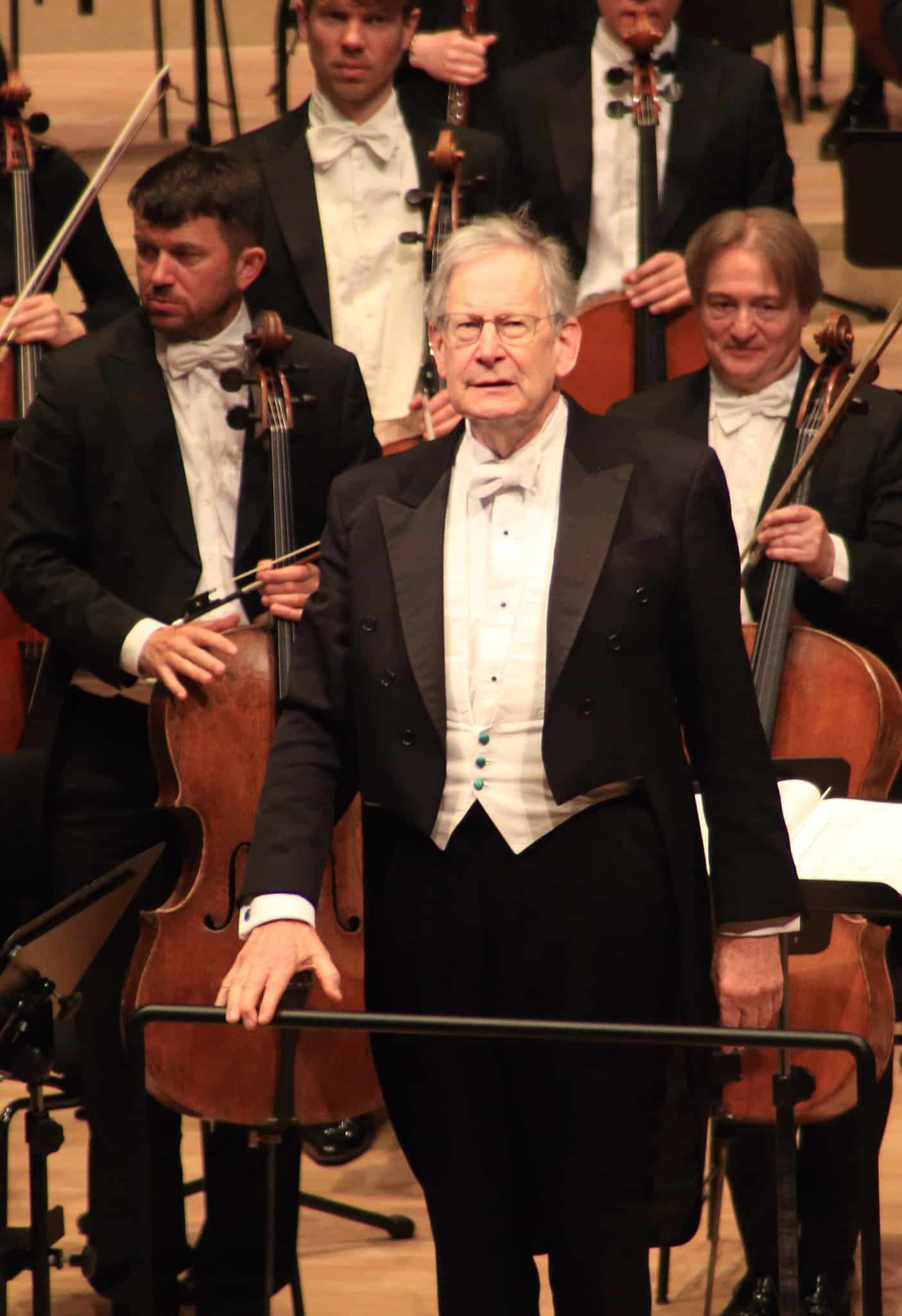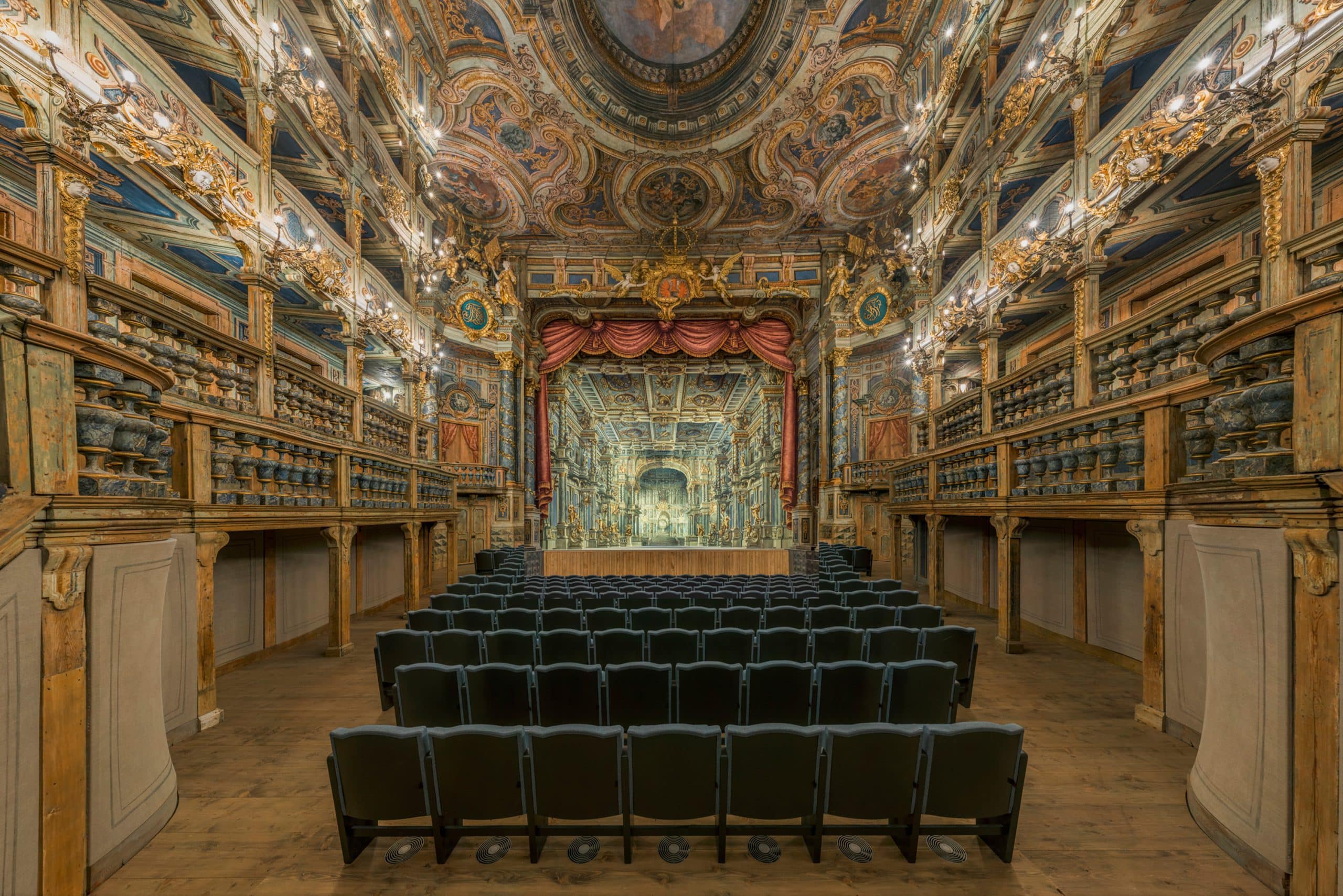Gidon Kremer: Competitions have become a joke
mainAfter reading Slippedisc’s concerns about the Shanghai Isaac Stern Competition, the great violinist has shared the following satirical thoughts about the progressive degradation of competition industry.

Competitions by Gidon Kremer
Amazing new competition rocks music world
An exciting new classical music competition held last week in Las Vegas has broken with long-established traditions. Its thoroughly innovative approach left audiences mesmerised, the winners speechless and jury members ecstatic.
To start with, the rules for selecting the winner incorporated a vitally important element that had previously been ignored or dismissed as irrelevant. The standard criteria of technical merit and artistic ability were supplemented by a “physical appearance” requirement. Marks were awarded in five subcategories, one of which was “glamour”. A degree of nudity among female competitors was obligatory. The amount of body movement and the number of changes in facial expression exhibited during the participants’ performances were also measured. No one who kept movement to a minimum had a chance of winning a prize.
Rivalry in this new category was particularly fierce. The rules were also enforced mercilessly. On the day of the final round, the audience was agog when one of the favourites (because of his ability to play exactly like one of the jury members) was eliminated on the spot for failing to wear a tie or a jacket. A young cellist from Georgia turned up in a dress that revealed too little cleavage and was only allowed to continue – on payment of a substantial fine – because her dress complied more than fully with the thigh exposure rulings.
Exciting innovations were also applied to technical merit and artistic ability. The benefits of modern technology are at last being applied to assessments of the arts! Technical merit was assessed technically – what else? Sensors were used to judge the precision of the pitch, a stop watch to judge the speed of a performance, and a decibel measuring instrument to judge the volume of sound and its variation during the performance. With staggering results!
“By taking advantage of technology, we wanted to bring music competitions into the 22nd century,” the organisers commented. “Apart from adapting the examples set by sports and beauty competitions, our aim was also to remove all doubts about the fairness of the jury’s decisions.”
In the category of artistic ability, vibration measures were used to score the beauty of the sound, while an applause meter (duration and volume of audience applause) was used to establish the overall success of the performance. The composer’s original markings – checked by a specially invented device which is able to follow the score bar by bar – determined the authenticity of the tempo. For the first time ever, the members of the jury were required to reveal the marks awarded to the individual competitors (in each of the three categories) immediately after each performance (as in figure skating).
Repertoire
In order to ensure a more objective view of musical interpretation, publishers were asked to include restrictions in the musical scores. This prevented candidates from playing a piece “too slowly” or “too fast”. In the future, works for which there are no appropriately marked scores will automatically be excluded from the competition repertoire.
As for the commissioned work, composers had to agree to include a certain number of notes and rhythmic challenges. The work performed last week also complied fully with the parameters previously known as “technical difficulties for orchestral musicians”, a further prerequisite for selection.
World-class jury
The star-studded jury included the famous violinist Sour Creamer, cellist Ninja Naisky and pianist Shorty Short. Their selection procedure broke new ground. Apart from submitting to a compulsory hearing test, they were required to provide home-made video or audio tapes of their own performances. They had also all attended preparatory courses on new technology, ratings and value assessment as well as on bias enhancement and self-profiling. All participants in the last three rounds of the competition had to vote for the jury member whom they wanted to judge their performance. Each candidate had only one vote.
Looking to the future
The resounding audience response to this new approach to classical music competitions has prompted the organisers, who all feature high up on the list of the world’s wealthiest people, to extend their techniques to other, related areas. Their foresight is astounding.
Starting next year, competition winners in all musical disciplines will be obliged to compete in further annual championships with rounds at regional, country-wide and worldwide levels. Capitalising on the success of this year’s competition, arrangements are also being made to introduce worldwide tours for all championship winners, similar to the ATP tours for tennis players.
“The enhanced objectivity in this competition immediately highlighted the potential for further development,” the organisers said. “We saw what was being done in the world of sport and thought, ‘Why not?’ Our present plans have the additional advantage of ensuring a higher income for jury members and event organisers.”
Licence to play
Also beginning next year, a new, annually renewable licence will be introduced to limit the number of unprofessional performances. The “licence to play” will be automatically issued to all competition winners. Without a licence, competitors will be effectively barred from all concert appearances.
Abuse of the licence will be subject to sanctions, the severest penalty being a three-year obligation to play 10 scales on stage before each recital and compulsory attendance at one of the new training courses for arpeggios and double stops.
New rating agency
What happens to winners once the competition is over? This neglected area will now be addressed in a proposal to track the activity of all winners by using a brand new scoring mechanism (i-play). The fewer concert appearances, the lower the score.
In order to contribute to the added value of competitions, further measures will be necessary to safeguard or enhance their status. “Based on practices in the banking sector, we are now busy setting up a rating system for all performing artists who cease to take part in competitions or who manage to avoid them entirely,” a spokesman for the competition sponsor, Grabitall Foundation, informed us.
The system will be monitored and updated by the well-established rating agency Substandard & Poorer, which will also assume the task of monitoring the i-play scores. All musicians worldwide will be obliged to play at a set number of international festivals. Records will be kept by Substandard & Poorer. Failure to gain a certain percentage of positive reviews will result in their disqualification as seeded artists. The decision of the agency will be final.
All ratings and records will be publicly available on the internet, the aim being to focus management’s attention and enhance their search for new “stars”. The most immediate advantage will be a marked reduction in the expenses incurred by managers while tracing new talent worldwide.
Further training
In conjunction with the University of Acoustic Distortion, courses leading to a diploma in artistic appreciation will be launched in the autumn. Further advice in this field is being sought from the internationally acclaimed Centre for Mindbending.
Similar courses to those attended by the jurors at this year’s competition are planned for agents and music critics. They will be of particular benefit for those who base their judgements on prejudice, gossip and rumours. Following a basic course on music appreciation, courses will include optional modules on mind-reading and subjective judgement.
For musicians, a degree programme that will include modules based on the above courses is particularly suitable for competition winners who are awarded top marks for “self-absorption”.
Modules on “developing ambition”, “conquering the world” and “how to be loved by mankind” will form part of the core curriculum. Each participant will also be obliged to spend at least nine hours a day listening to recordings of his or her own performances and to read a minimum of five reviews a day on his or her own playing. To prepare them even more fully for future competitions, they will be encouraged to take at least one course in Russian roulette.
Ensuring the future of music
The competition organisers are now seeking advice on the establishment of a worldwide accessible library of all annual competition recordings. Apart from the advantages of being able to compare artists’ performances, such a library would be the ideal means of making karaoke versions of the recordings available on the internet.
(c) Gidon Kremer/slippedisc.com





Nice one!
Brilliant! Especially because it is sooo close to the truth!
While this belated bit of humor hits the point it should be remembered that Mr. Kremer
is a product of these competitions and seemingly comes to this humorous observation when he no longer is in the spotlight …suppose better late than never .
Now, this is a funny one. 😀 He is what? He is a product of his work and of his talent, I dare say. And he most certainly is still in the limelight. The compentitions back in the late 60s and early 70s cannot be compared with today’s competions and music industry, which is 80% about marketing, looks and convenience.
Really?
Kremer and his wild haired cellist friend haven’t benefitted from marketing? Both have a certain look and image which grants them artistic credence.
Both also benefited from providing a good deal of shock value.
Really really?
With all due respect, but Kremer’s looks certainly did not help his ‘artistic credence’ or career a bit. More to the contrary.
You answered it yourself.
Kremer’s image is that he is “above” such petty, shallow things as having a pretty face or a dentist from the modern era. That is exactly why some people give his art so much respect.
That is not an “image” but GK’s true personality. His art deserves to be respected for its quality and not because of any other reason.
M2N2K, so you are saying you find him to be a sincere artist, intelligent musician, and humble man.
I do not find him to be any of these things. I find him to lack compelling conviction, and to me, all his musical gestures sound like a phony trying so hard to be different.
Ok, I’ll float and barely make a sound here, just to be different. Ok, I’ll play with a white sound here because nobody else does. If I open my mouth while I do it, it would be dramatic, eh? That is what I hear (and see) with Kremer.
I have a friend, a visual artist, who is looking to sell some of his high end work. He is from Eastern Europe, he wears thick glasses, and he makes no effort to look presentable. Shall I give you his contact info? Prices from US $35k, a true bargain.
No — I have never said anything about GK’s personal humility, because it does not concern me as a listener. Yes — he certainly is a truly original and intelligent artist, but there is nothing unusual about the fact that not everyone can hear that.
And I find nothing unusual about the fact that some people actually think his musicianship is thoughtful or interesting.
Everything else being equal, I do prefer originality to absence of it. However, I also realize that “everything else” is rarely “equal”, and so I value originality particularly highly when it is convincing and does not contradict the spirit of the music. By these criteria, most of GK’s performances between 1970 and about 2010 — I heard many and participated in a few — have been truly inspired and inspiring.
Excuse me, but since when is Gidon Kremer no longer in the spotlight?
Competitions in the 1960s and 1970s were very different from today…..not the cleanest events but at least more governed by artistic standards than now.
It is quite obvious that Mr Kremer is making precisely this point.
Really ?? you might read on Eric Friedman and his Russian event and the nasty piece of
work done on him by apparatchik Oistrakh…..Also.,Szigeti and his observations on the
Russian artistic standards , never mind the olympics .
Governed by artistic standards , tell it to Boris .. he might agree.
Things are not what they were. But they never have been.
Calling David Oistrakh an “apparatchik” is ignorant: it shows that you don’t know what the word means and/or don’t know what kind of person he was.
M2N2k you might enlighten us – Being awarded the Stalin Prize , Lenin Prize , the Peoples’ artist prize , traveling as a Cultural Ambassador,making movies extolling
the Soviet Union as a cultured nation ..all the while ignoring the mass murders by
the head honcho Stalin might suggest ” apparatchik” if not worse.
If a person is willing to accept the limited benefits coming from pogroms and other
horrors you might question their character no matter how they cleverly present
themselves .
You show a gross misunderstanding of life in the Soviet Union. The topic is much too complicated to explain here fully. Let me just remind you that Mstislav Rostropovich was a recipient of all those “benefits” as well while being practically a dissident which for him was much easier than for Давид Фёдорович because at least he (MR) was not Jewish. Besides, there was a huge area between being a dissident and an “apparatchik”, where people were just trying to survive. Like many other artists in Soviet Union, DO was in constant fight with authorities for most of his life and was harassed by them on numerous occasions, sometimes quite violently, which no doubt shortened his life by many years.
Naturally things become too difficult to understand when you hit close to home.It
is a bs artists’ answer to avoiding basic truths .For convenience sake the topic all
of a sudden becomes too complicated to understand .To compare Rostropovich to
Oistrakh is to insult the memory of Rostropovich .Oistrakh did what he felt would
preserve himself his family whatever, and Rostropovich saw the evil for what it was .
One person takes a stand against tyranny and risks everything another doesn’t , simple as that .you know very well that many artists spoke out and were never heard from again .Am sure Mr. Oistrakh was aware of that and so played the game pogroms or not.Which brings us back to his torpedoing of an American artist as Heifetz predicted .
Why “all of a sudden”? Life under Soviets has always been notoriously difficult to understand for anyone who has never lived under such regime. Being a Jew, DFO always felt more vulnerable than MLR ever did. It is true that the former was not a hero and wanted to survive. But there is a huge distance between not being suicidal and being an apparatchik, and all I am saying here is that calling DFO by that latter word is unjust and inaccurate. If EF thought differently, he was badly mistaken.
Milka Chocolate, Now available in 157.5% bitter cacao “flavour”.
As you know Boris, truths are never 100% sweet much as you would like them to be .
That he comes from a corrupt system is a given that he seemingly has done a turn about
is noted .
Some funny spots there, but somehow I doubt that it was Mr. Kremer himself who has written it, and certainly not in English and not in the last couple of hours that have passed since the Shanghai competition post, with all respect for his multiple talents.
Mick,since I happen to know Kremer personally for many years, can assure you that his English is excellent(as the other languages he speaks)and his ability to write is one of the best among musicians.
Not having the privilege to know Kremer personally, I’ve heard him speak English a few times, and I agree that his English is indeed quite good, but it doesn’t come anywhere near the polished style of the text in question. He does of course speak and write perfect Russian and German, both being his native languages.
Most intelligent people can write more eloquently and articulately than they can speak, particularly in a language that is foreign to them. Considering how fluent his English is, it is entirely possible that GK wrote this himself — not in a couple of hours of course (there is no implication of that here) but in a couple of days for sure. And I am saying that as a person who does have the privilege of knowing him personally.
Very funny and while sardonic, it’s undoubtedly on the mark. Heifetz would have no chance under these new rules. Having said that, and having noted the rules about female semi-nudity, I still like Yuja Wang and I reckon she’s the real deal.
To those who comment about Mr. Kremer’s benefitting from “these competitions” in an attempt to somehow downplay his “real talent” I can testify that his Elgar concerto in Leeds with Kiril Kondrashin somewhere around 1980 was one of the great musical moments of my life. A consummate master and a superb, passionate musician. A member of the RPO said to me “that was the sort of performance that makes being an orchestral musician worthwhile.”
I should hasten to note that Mr. Kremer would have been bounced out the Las Vegas competition very early. Smiling at the conductor I suspect would be a no-no. Mind you, no smiling back from Kiril………………..
I agree with you John that Yuja Wang is the absolute real deal. Her dress in Salzburg won over all in the audience.
I saw her recently in Rochester NY and when she appeared the two old fogies next to me both said “Look at that dress!” but boy could she play those Bartok concertos.
She would easily win at the Las Vegas Competition applying only the first of the rules.
Asked why she dresses as she does she replied “I’m a girl, why not”.
I was at that concert in Rochester as well, and I agree with you. While she is not my #1 favorite active pianist (who cares who my favorite pianist is, anyway), she is the real deal. And so is Mr. Kremer. He just finished a concert a few hours ago in Prague, with Kremerata Baltica and Clara-Jumi Kang, another ‘real deal.’ It was a killer.
Does anyone actually listen to Yuja Wang’s playing?
I do. Great Gershwin and Ravel last week in Salzburg. Pity she played with the Camerata instead of tbe Vienna Phil.
Rude and sexist. Crawl back into the hole you came out of.
Yes, the “Anon” hole……………………..or the “A hole?”
Oh like this one!!! please apply all !!
http://mircompetition.weebly.com/jury.html
Great man, great violinist, leave satire to those that are good at it (I should probably take my own advice).
Musical competitions are a big part of the toolkit that the establishment uses to maintain control of the art-form. They should disappear never to be seen again.
The suggestions for technical aids in competitions are nothing short of spectacular and – in all seriousness – should be taken into consideration. Theres enough BS as it goes.
The idea of an ATP tour of competition winners is actually great and I’ve discussed it multiple times in the past, none of which were with old trust fund snobs who use their wallets to determine who is the best because “they have taste” (many of them comment in blogs). That’s equally ridiculous.
You want people to care more for classical music? Make it into the Olympics. But no, that’s not classy: lets better continue to beg for money, blame the government, and meanwhile dress up as darth vader, and play a “salsa under the stars” concert as “outreach” with a young Latin-American conductor with long hair, or do a Beatles with Orchestra concert or a Godfather at the Orchestra movie night. If that doesnt do it for you, how about make fart jokes about Mozart while playing the violin with a vaccum cleaner? None of these attempts to ‘reach out’ to young audiences have put a single dent in the declining of value of classical music, yet they continue to make a fool out of themselves, with the collaboration of…..KREMER!
From that perspective, what Kremer takes as a joke might actually be a good idea…
In the end you have to realize this is all about show business. Talent is fungible, In matters of taste it always depends on the individual.
https://www.youtube.com/watch?v=6_RxbUBGs_0
Those were the golden days of a musical competition and why the reason of their long lasting success? I witnessed years later the unique friendship between Gidon Kremer and Philip Hirschhorn, it was very special.
“Competitions are for horses.” – Bela Bartok
Bartok probably said that after coming second (to Backhaus) in a competition, I think the year was 1902, not sure about the year. And by the way about Backhaus: he surely would be disclassified at the eliminatory phase in a competition as described by Mr Kremer, which says a lot about “objective measurements” in musical performances (unless you are playing Stockhausen, of course).
Yes, obviously Bartok considered that the wrong haus had been Backed….
Mr. Heifetz would laugh.
Anything associated with the name Isaac Stern is guaranteed one thing: It’s all motivated by $$$$$$ KA-CHING!
Classical music is evil and humans have no hope. I wish I had never heard any classical music. Animals and plants get on well without classical music. It is humans that are the problem. The killer apes.
I don’t think you can say all humans are the problem, it’s really only violinists.
Classical Music is not common to all humans. I have the impression that today’s killer apes don’t listen to Classical Music.
I have a very strong feeling that those who favour atonal and dodecaphonic music are the classic killer apes. They’re certainly doing a good job killing this particular art-form.
It seems that cows produce more milk when they listen to Mozart (eller maybe Moozart).
At Vienna Virtuoso we have developed the “Virtuoso Contest” which compares a performer’s best practices over a 6 month period and shows a picture of individual development based on a standard criteria for each instrument. The performers that improve the most based on their initial practice receive free private online lessons from world-famous virtuosos and detailed progress report. It is impossible to cheat our system because we collect and compare data from different sources. We’re happy to work with any school or competition to develop specific uses of our platform and assessment system: http://www.viennavirtuoso.com
Someone once made the observation that a sucker is born every minute
Competition for Violinist……is a “Joke”…I agree 10000%…!!!
No wonder……there are so many violin competition winners have no career.
Heifetz would never allow to have his name to be used for a such competition.
Milstein would never allow to have his name to be used for a such competition.
Oistrakh would never allow to have his name to be used for a such competition.
“Competition is for Horse….” Bela Bartok”